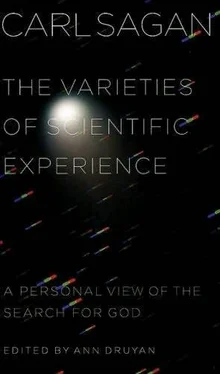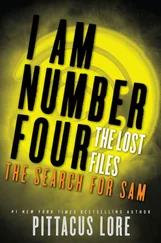Consider our past circumstances. Imagine our ancestors, a small, itinerant, nomadic group of hunter-gatherer people. Surely there was change in their lives. The last ice age must have been quite a challenge some ten to twenty thousand years ago. There must have been droughts and new animals suddenly migrating into their area. Of course there is change. But by and large the change is extraordinarily slow. The same traditions for chipping stone to make spears and arrowheads, for example, continues in the East African paleoanthropological sites for tens or hundreds of thousands of years.
In such a society, the external change was slow compared to the human generation time. Back then traditional wisdom, parental prescriptions, were perfectly valid and appropriate for generations. Children growing up of course paid the closest attention to these traditions, because they represented a kind of elixir of the wisdom of previous generations; it was constantly tested, and it constantly worked. It is not for nothing that ancestors were venerated. They were heroes to subsequent generations, because they passed on wisdom that could preserve lives and save them.
Now compare that with another reality, one in which the external changes, social or biological or climatic or whatever we wish, are rapid compared to a human generation time. Then parental wisdom may not be relevant to present circumstances. Then what we ourselves were taught and learned as youngsters may have dubious relevance to the circumstances of the day. Then there is a kind of intergenerational conflict, and that conflict is not restricted to intergenerational but is also intragener-ational, internally, because the part of us that was trained twenty years ago, let's say, must be in some conflict with the part of us that is trying to deal with the difficulties of today. So I claim that there are very different ways of thinking for these two circumstances: when change is slow compared to a generation time and when change is fast compared to a generation time. There are different survival strategies. And I would also like to suggest that there has never been a moment in the history of the human species in which so much change has happened as in our time. In fact, it can be argued that in many respects there never will be a time when the change can be so rapid as it has been in our generation.
For example, consider transportation and communication. Just a couple of centuries ago, the fastest practicable means of transportation was horseback. Well, now it is essentially the intercontinental ballistic missile. That is an improvement from tens of miles per hour to tens of miles per second in velocity. It's a very substantial increment. In communication a few centuries ago, except for rarely used semaphore and smoke-signaling systems, the speed of communication was again the speed of the horse. Today the speed of communication is the speed of light, faster than which nothing can go. And that represents a change from tens of miles per hour to 186,000 miles per second. And never will there be any improvement on that velocity.
Now, it's a very different world if the fastest that a message can get to us goes from the speed of a horse or a caravel to the speed of light. The speed of light means that we can talk-in essentially real time-to anybody on the Earth or even on the Moon. Or consider medicine. A few centuries ago, most of the children born to the great houses of Europe died in childhood. And they had the exemplary medical care of the age. Today even quite poor people in some nations at least have infant mortality astonishingly less than the crowned heads of state in the seventeenth century Or consider the availability of safe and inexpensive means of birth control. It immediately implies a revolution in human relations and especially in the status of women. These are all things that have happened very recently, and you can think of many, many others, all of which involve not just a change in the technical details of our lives but changes in how we think about ourselves in the world. Very major changes, and therefore not a circumstance where the wisdom of, say, the sixth century B.C. is necessarily relevant. It might be, but it might not be. And therefore, for this reason as well-for this reason especially-wisdom may lie not in simply the blind adherence to ancient tenets but in the vigorous and skeptical and creative investigation of a wide variety of alternatives.
For me personally, the kind of science that I do is utterly unthinkable in any other age. I find myself engaged in the spacecraft exploration of nearby worlds, something that would have been considered the most rank fantasy just two generations ago, when the Moon was the paradigm of the unobtainable. Some of you will remember those poems and popular songs-"Fly Me to the Moon," meaning asking for the impossible. And yet in our time a dozen human beings have walked on the surface of the Moon. And as I will stress in tomorrow's talk, that same technology that permits us to travel to other planets and stars also permits us to destroy ourselves-on a global scale, on a scale unprecedented in all of human history, and the mere knowledge that this is possible, even if we are lucky enough for it never to come about, must powerfully influence the lives of everybody who grows up in our time in a way that was not true for any other generation in human history.
I've spent much of my time over the last twenty years in the exploration of the solar system. Our robot emissaries have left the Earth, have visited every planet known to the ancients, from Mercury to Saturn, and reconnoitered some forty attendant smaller worlds, the satellites of those planets. We have flown by all those worlds, we have orbited and landed on three of them: the Moon, Venus, and Mars. There are something approaching a million close-up pictures of other worlds in our libraries. And it is a remarkable experience. Here's a world never before known by human beings, and then, for the first time, it is explored. This is a continuation of the spirit of adventure that I think has been a propelling force in human history. The worlds are lovely. They're exquisite. It is a kind of aesthetic experience to see them.
In the case of Mars, because of the Viking missions, we have been on the surface of that planet for some years, at least in two locales, and have essentially every day examined our surroundings. I personally spent in a certain sense a year on Mars in the course of that mission. I spent at least a great deal of my waking moments thinking about Mars. Now, at the end of such an experience, I feel something I hadn't planned on. And it is that these worlds, as exquisite and instructive as they are, are, as far as we can tell at this point, lifeless. There is in that lovely Martian landscape not a footprint, not an artifact, not even an old beer can, not a blade of grass, not a kangaroo rat, not even, so far as we can tell, a microbe. Mars and the Moon and Venus, as far as we can tell-the only planets we've landed on-are utterly lifeless. Maybe there's life in some places we haven't looked on those worlds. Maybe there used to be life and it is no longer. Maybe there one day will be life. But as far as we can tell here and now, there is none.
After that sort of experience, you then look back on your own world and you begin to have a kind of special feeling for it. You recognize that what we have here is in some sense rare. As I've argued previously, I suspect life and intelligence are a cosmic commonplace. But not so common that they're on every world. And in fact in our solar system we may discover that there is life only on this world.
This says that life is not guaranteed, that life requires something special, something improbable. I'm not for a moment suggesting it requires miraculous, divine, mystical intervention. But in a natural world, you can have probable events and you can have improbable events. And I'm sure this depends on the nature of the environments of the other planets. But there isn't any other planet that's just like the Earth, and, so far as we know so far, there isn't any other planet that has life on it. There are certainly premonitions and stirrings of life, the kind of organic chemistry on Titan, the big moon of Saturn that I referred to earlier. But that's still not the same as life. And so, by performing a first cursory inspection of our solar system, one realizes something important about where we come from.
Читать дальше










